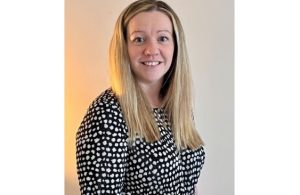Mayoral candidates talk HS2, inward investment and their focus for the future
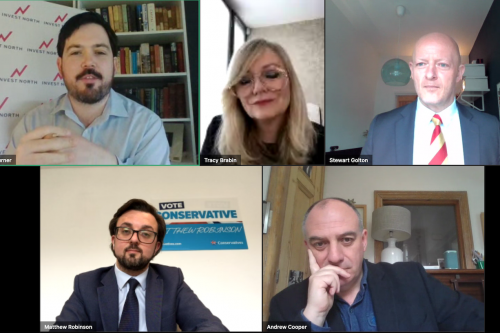
Four of the leading candidates to be the first West Yorkshire mayor answered questions yesterday morning ahead of the election on 6 May.
Speaking at the West Yorkshire Mayoral Hustings event, which was delivered in in association with business organisations the CBI, FSB and West & North Yorkshire Chamber, alongside media partner TheBusinessDesk.com, the candidates from the Labour, Conservative, Liberal Democrat and Green parties outlined their positions on key topics including inward investment and HS2.
Tracy Brabin (Labour), Stewart Golton (Liberal Democrats), Matthew Robinson (Conservative), and Andrew Cooper (Green) joined the virtual event chaired by Alex Turner, joint managing director of TheBusinessDesk.com.
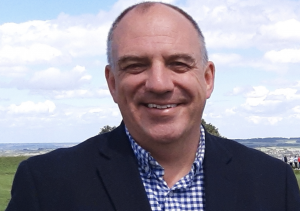
Andrew Cooper, Kirklees councillor and the Green Party candidate to be West Yorkshire Mayor
Starting the conversation, Cooper stated: “I believe the West Yorkshire mayor needs to be something different. Not a super council leader or an MP with a bigger constituency, but someone who is independent of our Labour council leaders and our Conservative government.”
He explained that with no Government or council to defend his focus would be “the interests of West Yorkshire” and leading on the action to address the climate crisis, an area he and the other candidates agreed will be a key focus for the first mayor.
The Kirklees councillor finished his opening address by stating: “I sought selection as a candidate for the role of West Yorkshire mayor because I could see the opportunities it would provide to make real change happen.”
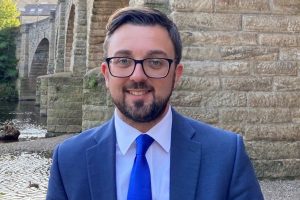
Leeds city councillor, Matt Robinson, the Conservative candidate to be West Yorkshire mayor
Robinson followed on, emphasising that the job of the mayor is one that has to represent all of the region. He said he wants to “take all of the region with us on this journey to deliver a modern inclusive future”.
The Leeds city councillor, who echoed his rivals on the importance of skills and training and without mentioning the words, “levelling up”, also stated: “I’ll champion business and bang the drum for business to move to the region, but also represent the industries that are already here.”
He added that he would, “secure extra investment to make sure that we regenerate our high streets and our towns and cities.”

Stewart Golton, Leeds city councillor and the Liberal Democrats candidate to be West Yorkshire mayor
For his council colleague, Golton, the focus was on growth. He outlined how he was certain he and his fellow candidates had all, “come into public service because they wanted to help as many people as possible prosper.”
He continued by setting out that his goal as mayor would be to, “make sure that the growth that happens over the next few years – which is so key to our future economy post-Brexit and post-Covid – is inclusive and tackles both climate change and the region’s economic prospects.”
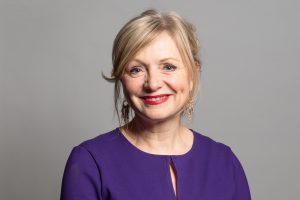
Tracy Brabin, Labour and Co-operative MP for Batley & Spen and Labour mayoral candidate for West Yorkshire
As the final candidate to introduce themselves, Brabin, current MP for Batley and Spen, took the opportunity on the day that marked one year since lockdowns began to highlight businesses resilience over the last 12 months. She said this was a, “testament to Yorkshire grit”.
She said her focus would be on coming back stronger, with part of the role to, “improve our creaking transport networks, develop a green housing strategy, and a world class skills offer.”
However, she added that her powers as mayor would be to include the power to “convene” in order to “bring businesses, neighbouring authorities, unions, mayors and the third sector together to help deliver” that vision.
As the session continued, the candidates all explained their views on major topics such as transport priorities, HS2 divided opinion.
The Labour and Conservative candidates both stated they supported the often-controversial high speed rail connection between Leeds, Birmingham and London.
In fact, Robinson who wanted to emphasise the importance of the project to the region for capacity and job creation, went so far as to state: “If elected I’ll personally go with a spade and start digging it from Leeds to make sure we get this going, because it has to be delivered from Leeds and starting in Leeds and going to Birmingham.”
Brabin, who also backed HS2, emphasised the region shouldn’t have to choose between HS2 or other transport infrastructure, noting, “it’s about an ambitious bold exciting plan for the north.” She said there must be connectivity across the North, as well as HS2.
But for the Liberal Democrat and Green candidates, their view on whether HS2 should go ahead was unequivocally “no”.
Cooper highlighted the rising costs. He quoted the Government’s official review, which placed costs at over £100bn and said those funds, “could have been spent actually doing the connectivity stuff that we need doing in the region.”
Golton, who was the only candidate to reference the project in previous answers, said: “It’s overdue, it’s overpriced, and it’s taking all of the oxygen space out of the transport debate.”
He said the region should have been, “insisting on the east-west route from Hull to Liverpool, taking in Leeds and Manchester and reintegrating Bradford into our northern economy from the beginning.”
He finished by stating: “The whole point of devolution is that you stand up for what you think are the priorities for your area, and the east west route is what is going to deliver our economy and growth.”
As questions moved towards inward investment, one audience member asked: “What can the mayor do to attract new companies to the region that require high skills and support the growth of existing innovative companies to ensure that they can compete internationally?”
Cooper said one area of growth we’ll see is around mass rapid transit. He said to attract people to the region with the necessary skills we have to show, “that long term investment in mass rapid transit is a thing.” He said demonstrating this would allow more people to see a career path ahead of them and an opportunity to build a life here.
Brabin said the way to attract people to the region is through the, “cultural offer”. She cited Channel 4’s selection of Leeds is partly down to what the city has to offer culturally, adding that the broadcaster brings with it a “cultural footprint which will be a magnet for others.”
Golton emphasised the assets which the region already has draws people in, such as, “the fantastic universities” and “the ability to be creative as an organisation, which has been built up over time by a lot of organisations and a lot of really good partnerships.”
However, the Liberal Democrat councillor highlighted a challenge, around branding for an international audience.
He said: “One of the problems we’ve got is, we haven’t got a One Yorkshire devolution which would have been much better in terms of being able to market ourselves to the world, because it’s something which is more recognisable than the sub-region of West Yorkshire.”
He added that if elected he would work with the other leaders across the wider Yorkshire region to make sure inward investment is something that is worked on “jointly” as together it makes, “our area even more attractive to people to come in.”
Robinson suggested he, unlike his opposition candidate, would not be, “unpicking the existing devolution deal and trying to package together a new one”. He did state that the role of mayor needs to be about giving people confidence.
He said: “That means lobbying and championing not just nationally but internationally and being the champion for our region and banging the drum for business. Working with Screen Yorkshire and Welcome to Yorkshire and playing a role to attract people here.”
He said he has a desire to create a “culture of enterprise and entrepreneurs,” adding this, alongside a green economy, a productive workforce and a reliable infrastructure is what will draw people in and make people want to invest.
The final question of the session saw Turner ask: “What’s the business or sector that most excites you with their potential and what they can do for the region?”
Brabin responded: “I’m going to be cheeky and give you two, because having spent three decades in the creative industries, I know how we can be the world leader in the creative industries.”
She added that the other sector would be manufacturing. She said she wants to see a pivot to make the region’s world-renowned manufacturing base the “the go-to place” for high tech cutting edge green production.
Robinson, agreed but also stated: “I’m really excited about things like nanotechnology. What our universities are working on, the technologies that are coming next and the future. It is about being ahead of the game.
“Somebody once said to me ‘you can be you can be first, you can be smartest or you can cheat.’ Well I don’t cheat, so we’re going to make sure that we’re going to be the first and we’re going to be the smartest in this region.
“That’s what will champion new industries and that’s what we want to do to make sure that those industries grow, thrive and make their base here in West Yorkshire.”
Golton said he sees real opportunities within the care economy and the health economy.
“Delivery of care in our region is a multi-billion pound industry,” he said. “At the moment it’s really under stress and we have the opportunity to create a far more responsive and sustainable care economy locally, which will actually build more wealth within our community and keep it within our community.”
Cooper, the only candidate to name specific businesses, talked about the exciting building sector. He outlined that the region is home to some great companies such as Citu in Leeds and the Green Building Store in Huddersfield.
He said: “You look at those companies and you look at the people who live in the properties that they produce and you get a really good customer experience that speaks volumes. That’s not the case in all areas of the building sector.”
This ability to improve a sector using a quality assured system that allows for higher standards to be met he said is what “really excites” him and one that he “wants to help develop.”
Ultimately despite their differences, it was clear that the candidates all see a real opportunity to push the region forward for the benefit of the residents and businesses who call it home.








